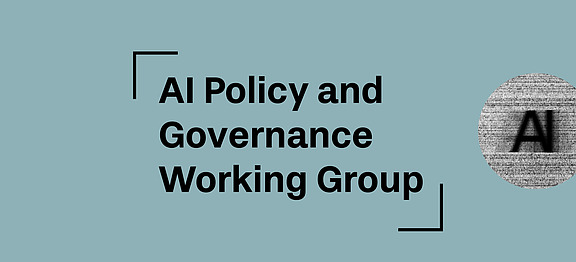
AI Policy and Governance Working Group
VISION STATEMENT
In the face of a complex, fragmented, and polarized AI policy landscape, we are committed to providing decision-makers with trustworthy guidance in the public interest. AI Policy and Governance Working Group (AIPGWG) members are leading experts with diverse perspectives who work to reach a rough consensus on high-priority issues through constructive debate and mutual understanding.
COLLABORATION PRINCIPLES
AIPGWG shared culture is grounded in open-mindedness and curiosity, fostering an approach to conversations that values both humility and a desire to learn. We emphasize mirroring and accurate disagreement, striving to reflect viewpoints fairly before responding. Our commitment to candor ensures that members communicate honestly, clearly, and constructively.
Our deliberately small working group size prioritizes member connections over expansion, recognizing that trust and meaningful collaboration are better enabled in small settings.
We focus on impact, using reality-grounded imagination, while maintaining critical self-awareness of our assumptions.
We will regularly review and refine our shared norms, ensuring they continue to support and sustain what has made our group effective.
We can be reached at aipolicy@ias.edu.



